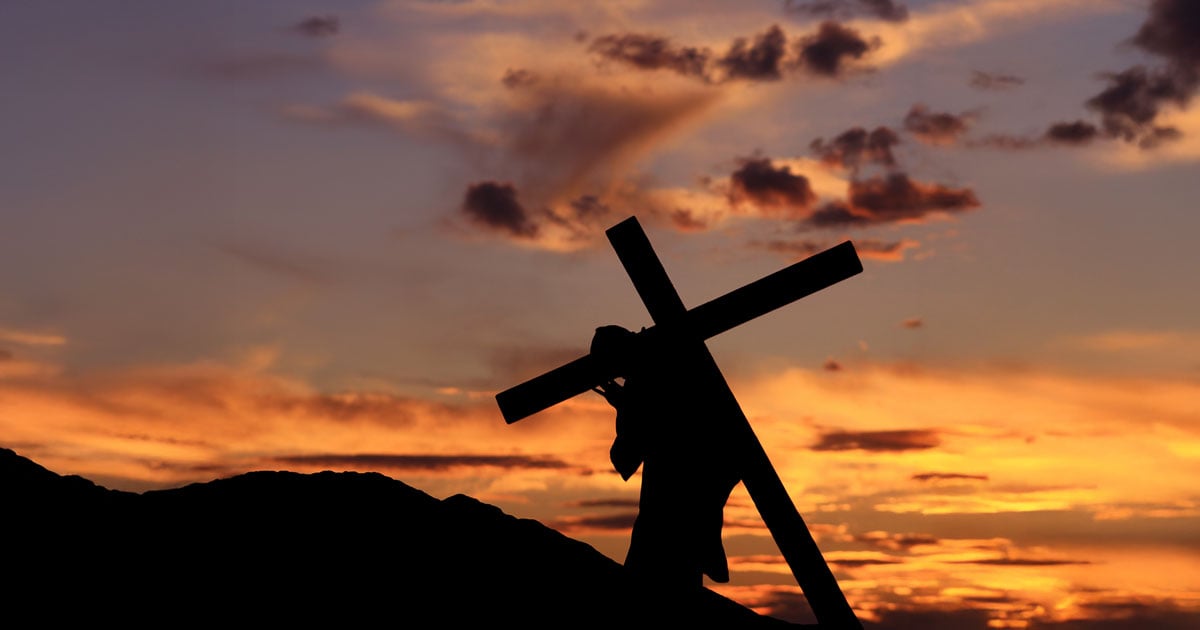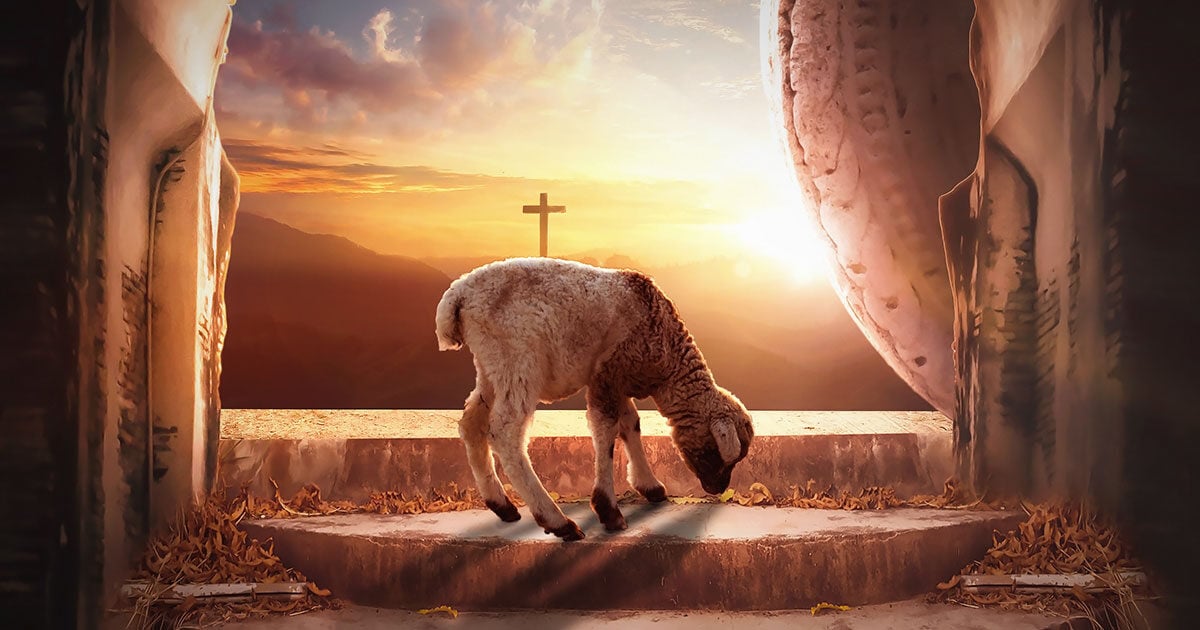It is so important to understand that God's value system is entirely different from our own—and His is correct. In human eyes, death is viewed as the ultimate defeat—the final tragedy. As such, it hangs over our heads from early childhood like the sword of Damocles.
My first encounter with death occurred when I was barely three years of age. I had become friends with a two-year-old whose parents were members of the church my father pastored. His name was Danny, and he came to visit me one day. We dressed up like cowboys and walked around shooting at things with toy guns. I remember trying to teach the little fellow how the game was played.
A few days later, Danny contracted an infection of some type and died very quickly. I didn't understand what had happened to him, although I knew my parents were upset. They took me with them to the funeral home but left me in the car for what seemed like an hour or more. Finally, my father came to get me. I was taken inside and shown the casket of my little friend. Dad then held me up so I could see Danny's body. I remember believing he was asleep, and that I could have awakened him if they would let me open his eyes. After we got back in the car, my parents tried to explain what had happened to Danny.
That was my first awareness that bad things can happen to good people. A short time later the same thing happened to my grandmother, and I began to get the picture. That gradual awareness of death is rather typical for preschool kids. Their dogs and cats die, and then they lose a grandparent or another member of the family. Some children, especially those in the inner city, learn about dying from the violence they witness in the streets.
Regardless of how it comes to be understood, death has a profound impact on our outlook and behavior from that point forward. For most of us, it represents the ultimate tragedy—the end to everything familiar and predictable. It bears the aura of the unknown—as depicted in horror movies and "scenes from beyond the grave." It is usually associated with disease, accidents, and violence, all having threatening overtones for us all.
Given this lifelong orientation, a diagnosis of a terminal illness (or the loss of a loved one) bears awesome implications for us psychologically and spiritually. I'm sure it will always be that way, and these words will not change it. But we need to understand that God views death very differently than we. It is no disaster to him. Isaiah 57:1 states, "The righteous perish, and no one ponders it in his heart; devout men are taken away, and no one understands that the righteous are taken away to be spared from evil." In other words, the righteous are far better off in the next world than in this one. Psalm 116:15 puts it more succinctly: "Precious in the sight of the Lord is the death of his saints."
What do these Scriptures mean for the living? They hint at a place on the far side of the river that is more wonderful than we can imagine. That is, in fact, precisely what we read in 1 Corinthians 2:9: "No eye has seen, no ear has heard, no mind has conceived what God has prepared for those who love him." How reassuring it is to know that our loved ones have gone on to that better world and that we as believers will soon join them!
Does this sound like "pie in the sky by and by"—or perhaps "the opiate of the people," as Karl Marx sarcastically described it? Sure, it does, but the Bible teaches it and I believe it. And because I do, death has taken on an entirely new dimension for me.
In a telephone conversation with the Rev. Billy Graham, whom I admire tremendously for his consistent walk with the Lord, I once mentioned his ongoing battle with Parkinson's disease. Having watched that illness ravage the mind and body of my mother, I asked him, "Does your faith hold you steady at this stage of your life? Do you still believe what you did when you were young?"
The godly evangelist immediately replied with great emotion, "Oh, Jim, I can hardly wait to see my Lord!"
That is the biblical response to death. It is not a tragedy—it is a triumph! We should see it as a transition to the unfathomable joys and fellowship of eternal life. I heard a man who understood this concept beautifully. His last words before dying were, "This should be interesting."
Paul put it like this: "O death, where is thy sting? O grave, where is thy victory?" (1 Corinthians 15:55, KJV). Then toward the end of life he said, "For to me, to live is Christ and to die is gain" (Philippians 1:21).
If you have recently lost a child or a loved one, or are facing death yourself, I don't want to minimize your pain. But I hope you will see that the discomfort is intensified by a misunderstanding of time. Our journey here has the illusion of permanence about it. Billions who went before us thought the same thing. Now they are gone—every one of them. In truth, we're just passing through. If we fully comprehended the brevity of life, the things that frustrate us—including most of those occasions when God doesn't make sense—wouldn't matter so much.
This is a vitally important biblical concept. David wrote, "As for man, his days are like grass, he flourishes like a flower of the field; the wind blows over it and it is gone, and its place remembers it no more" (Psalm 103:15-16). He also said, "Show me, O Lord, my life's end and the number of my days; let me know how fleeting is my life" (Psalm 39:4). Moses expressed the same idea in Psalm 90:12, "Teach us to number our days aright, that we may gain a heart of wisdom." That "wisdom" of which Moses spoke puts everything into proper perspective. It is difficult to get excited over raw materialism, for example, when one remembers that everything in this life is temporary.
That thought occurred to me one day when I was taking a commercial airline flight. We taxied out to the end of the runway and waited for clearance to take off. I looked out the window and saw the remains of two huge 747 airplanes sitting on the field. All the paint had been stripped off the fuselage and rust was spreading down from the top. The insides had been gutted and the windows were sealed. Then I saw a tiny bit of blue paint on the tail of one plane and realized these had been proud ships in the fleet of Pan American Airways.
The empty hulks looked pitiful sitting out there alone, shorn of their beauty. For some reason, they reminded me of the poem entitled "Little Boy Blue" by Eugene Field (1850–1895). The first stanza reads:
The little toy dog is covered with dust,
But sturdy and staunch he stands
And the little toy soldier is red with rust,
And his musket molds in his hands.
Time was when the little toy dog was new,
And the soldier was passing fair;
And that was the time when our Little Boy Blue
Kissed them and put them there.
I might have composed my own poem as I sat looking out the window:
Time was when these two airplanes were new
And they flew to great heights in the sky.
But now they are rusty, forgotten, and old
And they seem to be questioning, "Why?"
I imagined the day these magnificent crafts were rolled out of the Boeing plant with shiny new enamel and the proud Pan Am insignia on their tails. They were christened with champagne amidst cheers and laughter. Then they were taken on their maiden voyages. Little boys and girls craned their necks skyward to watch these beautiful birds come in for a landing. What excitement they must have generated for passengers and crew.
Now, the company that owned them has gone bankrupt, and the planes are grounded forever. How could it happen in fewer than 20 years? Who would have thought these multimillion-dollar aircrafts would come to such a quick and ignoble end?
As we taxied past the shells, I thought about the impermanence of everything that now looks so stable. Nothing lasts very long. And we are the ones who are passing through, on our way to another life of far greater significance.
To those who are hurting and discouraged at this time, I think it would be comforting to look forward to the time when the present trials will be a distant memory. A day of celebration is coming like nothing that has ever occurred in the history of mankind. The guest of honor on that morning will be one wearing a seamless robe, with eyes like flames of fire, and feet like fine brass. As we bow humbly before Him, a great voice will thunder from the heavens, saying:
Now the dwelling of God is with men, and he will live with them. They will be his people, and God himself will be with them and be their God. He will wipe every tear from their eyes. There will be no more death or mourning or crying or pain, for the old order of things has passed away. (Revelation 21:3-4)
And, again the mighty voice will echo through the corridors of time:
Never again will they hunger; never again will they thirst. The sun will not beat upon them, nor any scorching heat. For the Lamb at the center of the throne will be their shepherd; he will lead them to springs of living water. And God will wipe away every tear from their eyes. (Revelation 7:16-17)
It is the ultimate answer to those who suffer and struggle today. It is the only solace for those who have said good-bye to a loved one. Though the pain is indescribable now, we must never forget that our separation is temporary. We will be reunited forever on that glad resurrection morning. As the Scripture promises, our tears will be banished forever!
My father and mother will also be in the crowd on that day, standing expectantly beside my great-grandfather who prayed for me before I was born. They will be straining to catch a glimpse of our arrival, just like they did so many Christmas seasons when we flew into the Kansas City Airport. Dad will have so much to tell me that he will be bursting with excitement. He'll want to take me to some distant planet he's discovered. Your loved ones who died in Christ will also be in that great throng, singing and shouting the praises of the Redeemer. What a celebration it will be!
This is the reward for the faithful—for those who break through the betrayal barrier and persevere to the end. This is the crown of righteousness prepared for those who have fought a good fight, finished the course, and kept the faith (2 Timothy 4:7-8). Throughout our remaining days in this life, therefore, let me urge you not to be discouraged by temporal cares. Accept the circumstances as they are presented to you. Expect periods of hardship to occur, and don't be dismayed when they arrive. "Lean into the pain" when your time to suffer comes around, knowing that God will use the difficulty for His purposes—and, indeed, for our own good. The Lord is very near, and He has promised that your temptation will not be greater than you can bear.
I'll leave you with these wonderful words from Psalm 34:17-19:
The righteous cry out, and the Lord hears them; he delivers them from all their troubles. The Lord is close to the brokenhearted and saves those who are crushed in spirit. A righteous man may have many troubles, but the Lord delivers him from them all.
From Dr. Dobson's book When God Doesn't Make Sense.












